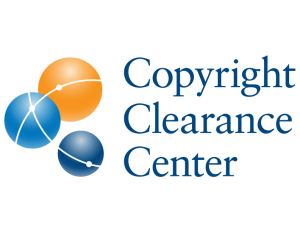Publishers divided on ResearchGate
Scholarly research networks have moved into the front line this month, as publishers have issued conflicting statements about ResearchGate, the network that earlier this year announced funding of more than $50 million from investors including Goldman Sachs, Bill Gates, and the Wellcome Trust.
A statement from the Coalition for Responsible Sharing, a group of five publishers comprising the American Chemical Society, Brill, Elsevier, Wiley, and Wolters Kluwer, draws attention to the high proportion of copyright material hosted by the site – around 7 million articles, or 40% of its content. The statement also notes that attempts to persuade the site’s owners to commit to amicable solutions, such as signing up to the Voluntary Principles of Article Sharing on Scholarly Collaboration Networks, or processing uploaded content to establish whether it could be shared publicly or only privately, have proved unsuccessful. Though ResearchGate reportedly removed from public view a great many of the offending articles following the CRS statement, this was not accompanied by any communication with the Coalition, and the five publishers will now be issuing takedown notices concerning the remaining unauthorised content hosted on the site.
However, Springer Nature has issued a separate statement announcing that it has been engaging in what it describes as “serious discussions” with ResearchGate, and that the two parties are “cautiously optimistic” about finding a solution to the problem of sharing scientific journals online. They invite other publishers and scholarly societies to join their talks.
New appointments at Wiley
Brian Napack has been announced as the new president and CEO at Wiley, becoming the fourteenth CEO in the company’s 210-year history. Succeeding interim CEO Matthew Kissner, Napack was previously Senior Adviser at private equity firm Providence Equity Partners, and currently serves as a director on the boards of several publishing and education companies, including Blackboard, Houghton Mifflin Harcourt, and Synergis Education. Wiley has also appointed Ella Balagula Executive Vice President of Publishing Business; she joins the company from Elsevier, where she was responsible for product management, software development and content acquisition and production in the academic and engineering divisions.
Taylor & Francis buys Dove, completes pilot
Taylor & Francis has made several announcements. It has acquired the Open Access publisher Dove Medical Press, best known for its portfolio of health science journals. 6,000 ebooks from its lists have been added to ProQuest’s Academic Complete collection. And it has also successfully completed the pilot of its Share More Easily programme, which used ReadCube technology to supply its books’ authors with sharing links to free-to-read versions of the complete text of their works. Initial feedback shows that the vast majority of authors involved in the pilot not only expressed interest in using such links but said that the opportunity to do so would influence their future choice of publisher.
In brief
Emerald Publishing has launched a new open access programme, Emerald Reach, removing embargo periods across its journals, and offering additional services for authors and enhanced metadata. A dedicated section of the Emerald Insight website will host open access content.
IOP Publishing has extended its integration of Altmetric’s impact tracking functionality. Altmetric badges will now be displayed across all its book titles, and Altmetric Explorer will be made available to all internal staff. OpenAthens has launched OpenAthens Cloud, a cloud-based content provider solution enabling federated single sign-on via OpenID Connect.
The Royal Society of Chemistry has agreed a deal with the Biochemical Society’s publishing division Portland Press to sell content from its journals.
EBSCO has issued its predictions for the 2018 journals market, anticipating an increase of 5-6% in publisher prices next year for academic and medical libraries. It notes that such costs continue to outpace library budget growth, and warns institutions that the weakening dollar may add further costs to their budgets.

Alastair Horne is a PhD student
at the British Library and Bath Spa University.

The Academic Newsletter is sponsored by The Copyright Clearance Center.
Copyright Clearance Center (CCC), with its subsidiaries RightsDirect and Ixxus, is a global leader in content workflow, document delivery, text and data mining and rights licensing technology for thousands of publishers, businesses and academic institutions. CCC’s solutions provide anytime, anywhere content access, usage rights and information management while promoting and protecting the interests of copyright holders. CCC serves more than 35,000 customers and over 12,000 copyright holders worldwide and manages more than 950 million rights from the world’s most sought-after journals, books, blogs, movies and more. The company has locations in the US, the UK, the Netherlands, Spain, Romania and Japan.

